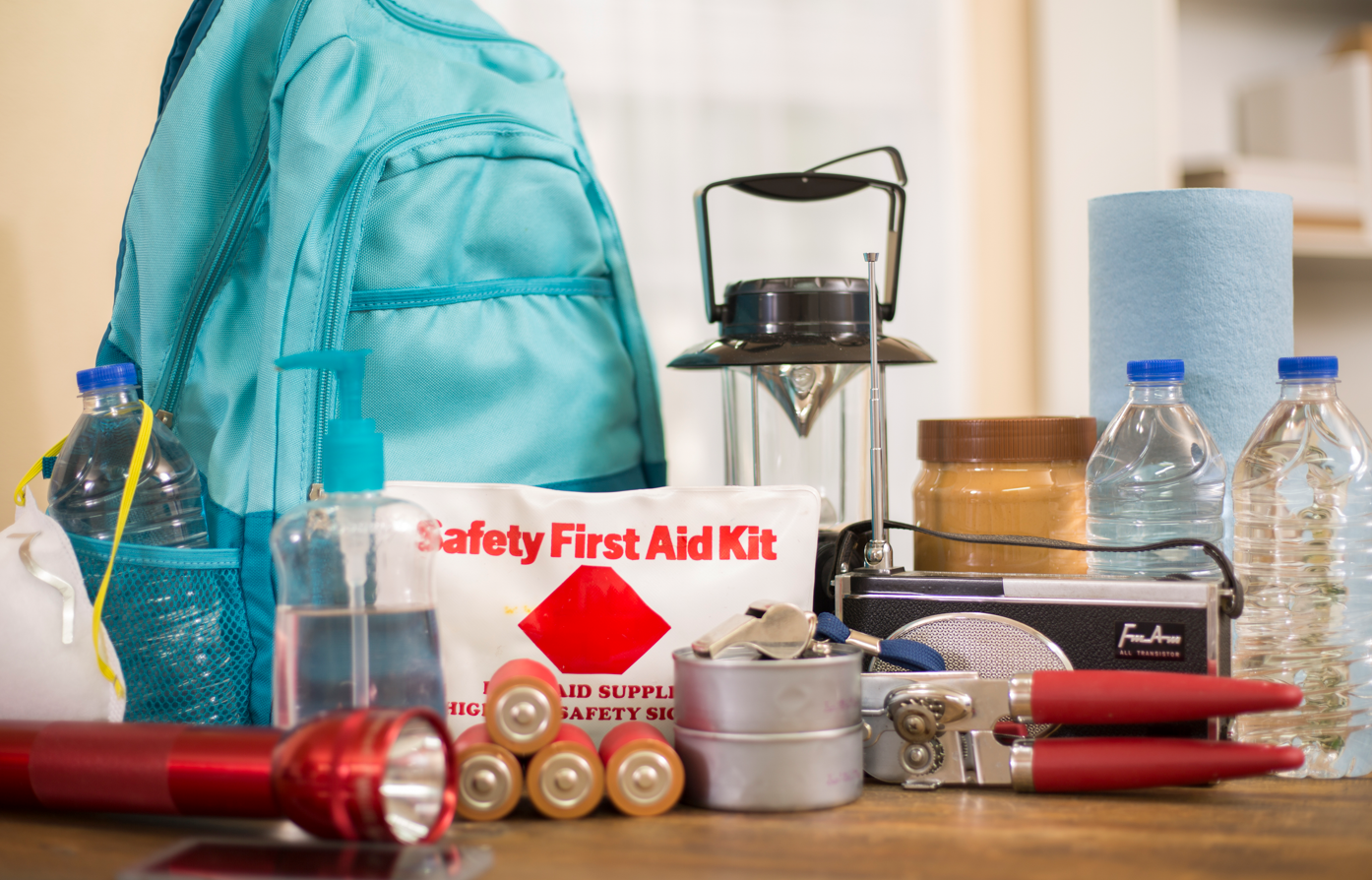
Spring 2024
We’re back with another edition of Whole You, a newsletter from CMS Health Plan that helps you get the most from your child’s benefits.
We’re sharing some tips to deal with allergies and asthma this summer, plus some tasty fruit and veggie pairings to strengthen your immune system.
Learn how to prep for hurricane season and refresh yourself on water and mosquito safety as the weather warms up. Get some mental health pointers, information on member rewards, tips for monitoring your child’s medicines – and more!
In case you missed it, make sure to read our winter 2024 issue (PDF).

Allergy season is back. And when your child has allergies, this time of year can be tough, especially if they have asthma. Try these tips to help them get a little relief from pollen and other allergens.
- Ask about testing. Allergy testing has come a long way in the past decade. Find out what specific triggers your child’s body responds to.
- Stay in. Allergens thrive in the spring and summer. Find indoor activities for your child to keep their allergies in check.
- Check the index. Most TV news stations report allergy forecasts during weather segments. There are also websites and apps that can tell you about pollen levels in your area.
- Keep windows up. Keep windows closed at home and in the car to keep allergens from getting inside.
- Filter out the bad. Change air filters in your home regularly for the best quality air flow. Keep your carpets and floors clean and dust free by vacuuming often.
- Keep it clean. Make sure your child takes a bath or shower before bed to keep their sheets allergen-free.
- Eat healthy. Keep an eye on your child's food intake. Certain foods like sugars, wheat and dairy can make allergies worse. Take note of symptoms like nausea, headache, dizziness or an itchy throat after eating. Make sure your child drinks plenty of water to flush and hydrate their system.
If your child has asthma, check out the CMS Health Plan Asthma Guide. You can also ask their Care Manager about the asthma disease management program and other benefits that may be available.
It’s hard to see your child struggle with mental or behavioral health. Here are some simple ways you can help them.
- Pay attention. Notice what your child says and how they act. Provide a safe space and teach them how to talk about their feelings.
- Show the way. Find age-appropriate ways to let your child see how you deal with mistakes, setbacks or sadness. It will help them do the same and make it easier for them to bounce back from challenges.
- Build independence. When you can, let your child figure out problems on their own. It will help them build a sense of independence.
- Boredom is OK. You don’t have to schedule every free moment with playdates or activities. Boredom can lead to creativity.
- Provide structure. Set regular mealtimes and bedtimes, limits on electronics, and rules for play and how to treat others. Create boundaries but be flexible when you need to.
Remember: If your child has been to the hospital for a behavioral health visit, it’s important that they see a doctor within one week of coming back home. This should help your child avoid another admission. Plus, they can earn a $20 reward.
The doctor should be a licensed behavioral health provider, like a therapist or a psychiatrist. They will review your child’s medications, answer your questions and make sure your family has the services you need.
Can’t get to the doctor in time? See a provider virtually with telehealth. You can also search for a provider online or call Member Services at 1-866-955-8770 (TTY 1-800-955-8770). Someone is available to help you Monday through Friday, 8 a.m. to 8 p.m. Eastern.
Is your child struggling with alcohol or substance use? Try the Substance Use Health Coaching disease program, for members 12 years and older. Members who complete three coaching sessions over three months earn a $10 reward.
Sources:

June is the first month of Florida’s hurricane season. There’s a lot to do to make sure your family is prepared. Use the CMS Health Plan Emergency Resource Guide to tackle these three important steps:
- Build a kit
- Create a plan
- Prepare your child
Don’t have a safe place to stay during a big storm? Register your child for a Special Needs Shelter in advance. Contact your child’s Care Manager if you have questions or need help finding emergency resources in your area.

Fruits and vegetables are packed with nutrients that give us energy. Put them together at mealtime to help your child power up this summer. Try these healthy combos:
- Tangy vitamin boost. Roast asparagus with lemon and garlic. It’s a tasty side dish. Lemons have vitamin C for a strong immune system. Asparagus has vitamin K, iron and zinc for healthy growth.
- Low-calorie salad. Make a salad with fresh baby spinach. It’s packed with protein and vitamin K. Add fresh or dried fruit, then make a light dressing with lemon juice, olive oil and spices.
- High-protein greens. Cook canned artichokes and green peas with shallots, onion or garlic. Use an herb, like parsley or mint. Artichokes are good for your heart and high in fiber. Green peas have protein to keep your child full.
- Frozen treat. Blend frozen honeydew and sliced kiwi with lime juice and ice. It makes a cool smoothie. Honeydew has potassium and keeps the heart healthy. Kiwi has fiber, antioxidants, potassium and vitamin C to help control blood pressure.
- Sweet n’ spicy bite. Add sliced mango to a lettuce salad. Make a dressing with lime, honey, vinegar, olive oil, salt and chili powder. Mango has fiber for digestion and vitamin A for your eyes. Lettuce has vitamins A and C.
We hope you enjoy these quick and healthy recipes. If you need help getting your child to try new, healthy foods, ask their doctor or Care Manager for help.
You're Invited
Visit one of Sunshine Health’s monthly food pantries to pick up fresh and self-stable healthy food to stretch your food budget. They are held from 9 a.m. to noon, on the third Thursday of each month at Sunshine Health Community Connections Centers in Tallahassee Jacksonville, Orlando, Ocala, Tampa Lauderhill and Miami. All are welcome on a first-come, first-served basis. You do not need to be a Sunshine Health member.

When the weather gets warm, it’s easy to start dreaming about a dip in the pool or a trip to the beach. Grab your swimsuit – but don’t forget about water safety!
Drowning is a serious risk to children. Drownings can happen in any body of water, from a pond to the ocean, and even in a bathtub or large bucket. And they can happen in as little as one minute.
Use these tips to keep your child safe around water this summer:
- Permission granted. Teach your child to always ask permission to go near water.
- Fenced in. Make sure pools and hot tubs have fencing around all sides. The fence should be at least 4 feet tall with swing gates that close and latch on their own.
- No distractions. Stay with your child, even with a lifeguard on duty. Young children can drown in as little as one inch of water, so keep them within arm’s reach without any distractions, including your phone.
- Empty after use. Water should be drained after use. Store tubs, buckets and containers upside down and out of children’s reach.
- Closed lids. Keep toilet lids closed. Close doors to bathrooms, the kitchen, the laundry room and anywhere else with access to water when not in use.
- Life jackets save lives. Children should always wear a U.S. Coast Guard-approved life jacket when riding in a boat. Blow-up floaties, even though they float, are not enough.
- Bring friends. Never let your child swim alone.
- No messing around. Teach your child not to push or dunk friends underwater when swimming. Teach them to walk around pools instead of running.
- No diving. Make sure your child knows not to dive in headfirst without knowing how deep the water is.
- Float where you can swim. Set boundaries for where your child can and cannot swim. They should never be too far away from the shore or pool deck.
A child or weak swimmer can drown in the time it takes to reply to a text or apply sunscreen. Stay safe out there and have fun!
Sources:
Has your child been screened for autism? Doctors recommend it for all children. Here are some fast facts to know.
What is autism?
Autism Spectrum Disorder is a common developmental condition that affects the brain. It has a wide range of symptoms and looks different from person to person.
What are the signs of autism?
Autism symptoms usually start within the first two years of a child’s life. Watch for repetitive movements and speech, developmental delays and trouble showing emotions.
What can I do if I think my child has autism?
If you think your child has autism, talk to their doctor right away. There is no test for autism, so the doctor will use your child’s developmental history and behavior to assess them.
Learn more about autism with the CMS Health Plan Autism Guide. Contact your child’s Care Manager with questions.

Long summer days mean your family might be spending more time outside. Make sure you know how to protect against mosquitos.
Mosquito bites usually are just itchy. But sometimes they can be serious. Some mosquitos can spread viruses that can make people very sick, or even be deadly.
Mosquito facts:
- They bite during the day and at night
- They like warm temperatures
- They breed in standing water
- They can live outdoors or indoors
- Mosquito season runs from summer to fall
Mosquito protection:
- Cover up. Wear long sleeves and pants to cover your arms and legs while outside.
- Repellant. Pick a bug spray or insect repellent that has one of these ingredients: DEET, picaridin, IR3535, oil of lemon eucalyptus, para-menthane-diol or 2-undecanone.
- Control. Get rid of any standing water around your home to prevent mosquito breeding outdoors. Keep windows and doors closed to keep mosquitos from getting indoors.
REMEMBER: Your child gets $25 a month to spend on certain over-the-counter items at CVS Pharmacy. These include two different types of OFF! bug spray. You can also spend it on the items your child may need if they get bitten, like pain relievers, antihistamines, anti-itch creams and ice packs.
Sources:
A new diagnosis is a lot to take in. There can be a lot to learn about how to help your child. Check out the CMS Health Plan diagnosis guides for help.
They give you information on symptoms, treatments, caregiving tips, benefits and more so you can support your child’s health.
Visit our Your Child’s Diagnosis page view guides on common conditions, including:
If there isn’t a guide for your child’s diagnosis, there are other ways to find support or get answers to your questions:
- Contact your child’s Care Manager
- Call Member Services at 1-866-799-5321 (TTY 1-800-955-8770), Monday through Friday, 8 a.m. to 8 p.m. Eastern. If you need help outside those hours, call the same number and follow prompts for:
- 24/7 Nurse Advice Line
- 24/7 Behavioral Health Crisis Line
- Visit Sunshine Health Community Resource Database
Certain conditions require prescription medications that affect the way your child’s brain works. That makes it especially important to follow up with their doctor to make sure a medication is working correctly. Here are two types of medications to monitor closely:
ADHD (stimulants, antidepressants, etc.)
If your child starts taking ADHD medication, they should be monitored closely for several months until they have a stable medicine schedule.
Schedule a follow-up visit within 30 days of starting the prescription. Your child should see the doctor again at least once a month for three to six months. These visits will allow your child’s doctor to ask questions about how the medicine makes your child feel. They can answer any questions you have and make changes to your child’s type of medicine or dosage if needed.
Once your child is stable on their ADHD medication, they can be seen every three months, and eventually every six months. Use the CMS Health Plan ADHD Guide to learn about CMS Health Plan can support your child. Contact your child’s Care Manager with questions.
Mood/personality disorders (antipsychotics)
Antipsychotics can come with serious side effects that may affect the brain and body. A big reason why is that they change your child’s metabolism, or ability to process food.
Make sure your child has a blood test at least once a year to track their cholesterol and triglycerides. Keep an eye out for physical changes, like weight gain. Talk to their doctor about their risk of diabetes.
Remember: Your child should never stop taking medication abruptly without talking to their doctor. This can cause extreme and dangerous side effects.
